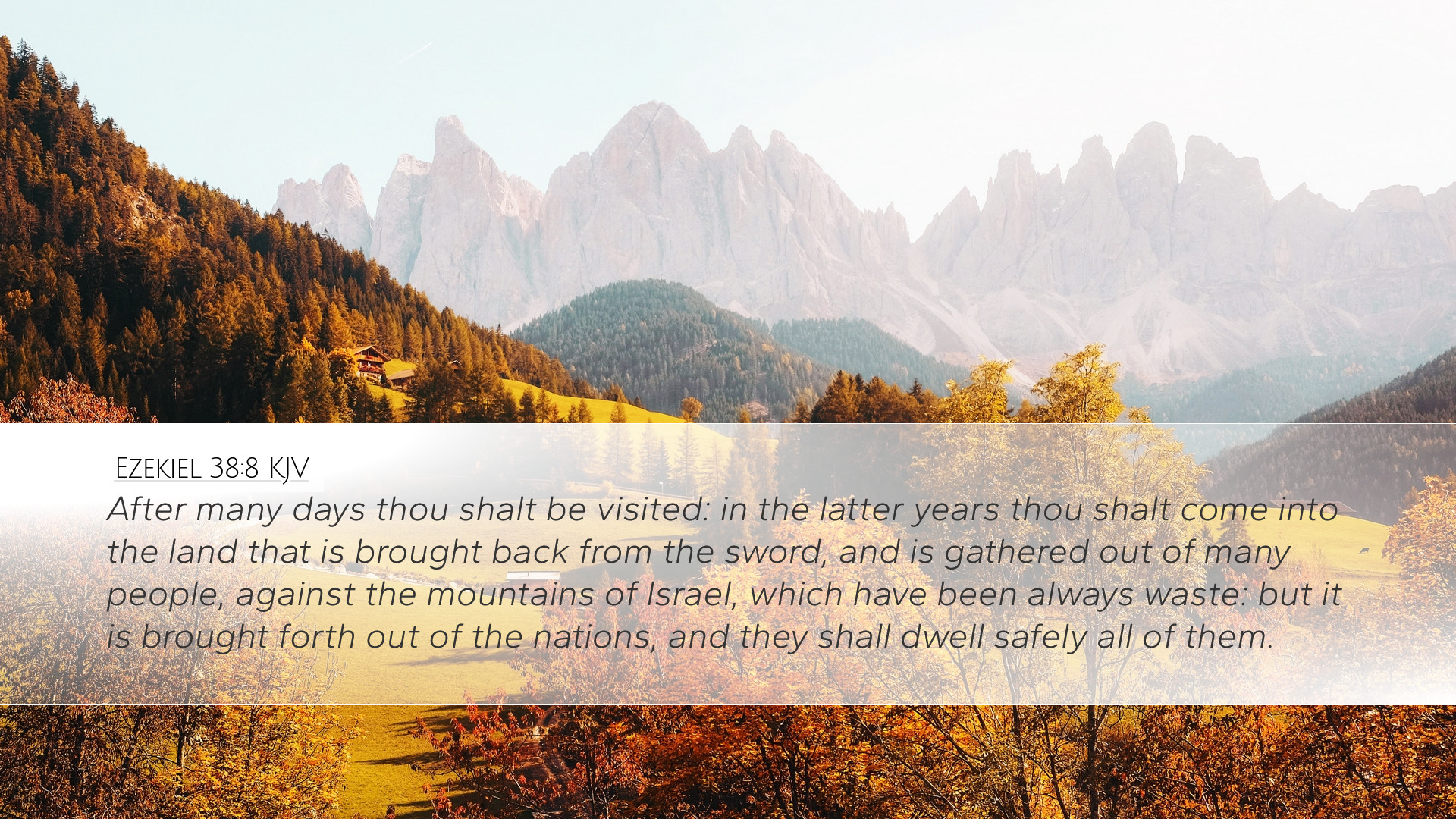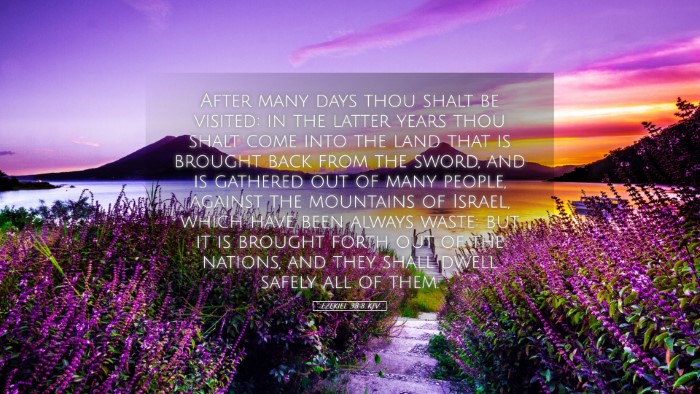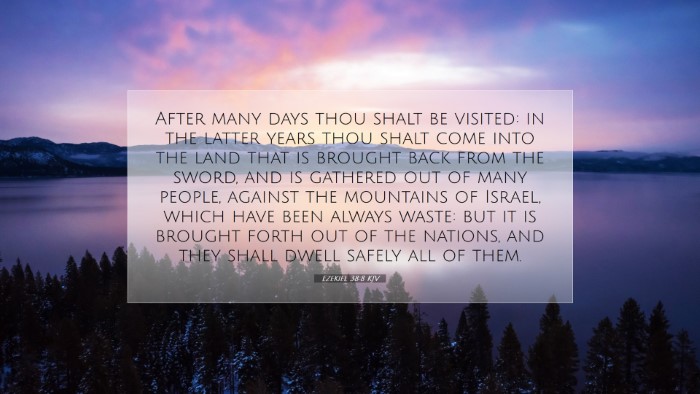Ezekiel 38:8 - Bible Commentary
Ezekiel 38:8 presents a profound prophetic vision concerning the future invasion of Israel
by Gog, the leader of Magog. This verse states,
"After many days you will be visited; in the latter years you will come into the land
of those brought back from the sword, and gathered from many people on the mountains of
Israel, which had long been desolate; they were brought out of the nations, and now all of them
dwell safely."
Contextual Background
Ezekiel, a prophet during the Babylonian exile, speaks extensively about the restoration
of Israel, divine judgement, and future hope. Chapter 38 marks a pivotal moment in
prophetic literature as it outlines a climactic confrontation between the forces of evil,
represented by Gog and Magog, against the people of God.
Key Themes in Ezekiel 38:8
-
Divine Sovereignty: The prophecy underscores God's control over human
history, knowing that the latter days hold significant events regarding His people.
-
The Restoration of Israel: The phrase "brought back from the sword"
emphasizes God's redemptive plan for Israel, indicating a time of restoration after
suffering and exile, as noted by Matthew Henry.
-
The Gathering of Nations: The mention of "gathered from many people"
suggests a divine orchestration in the regathering of Israel, a theme echoed in other
prophetic texts such as Isaiah and Jeremiah.
-
Peace and Security: The latter part of the verse highlights a time when
Israel "dwells safely," portraying an ideal state under divine protection.
Commentary Insights
Matthew Henry's Perspective
Matthew Henry emphasizes the significant prophetic implications of the passage,
suggesting that it points toward an eschatological hope for the people of God. He notes that
the "many days" mentioned indicates a period long enough for God's plans to unfold.
Henry observes the "latter years" as a time marked by profound change, where God's favor returns
to His people after prolonged desolation.
Albert Barnes’ Contributions
Albert Barnes expands upon the geographical implications of "the mountains of Israel,"
explaining that this sets the stage for the anticipated attack from Gog and Magog, which
he views as symbolic representations of chaotic forces opposing God. Barnes posits that
this prophecy serves as both a warning and a promise—warning to the nations but a promise
of safety and restoration to Israel. He encourages readers to understand that despite the
threats posed by external forces, God’s plan for mercy and protection prevails.
Adam Clarke’s Analysis
Adam Clarke provides an insightful historical context by analyzing who Gog and Magog represent. He
likens this invasion to events that challenge the covenantal relationship between God and His
people. Clarke asserts that this prophetic vision not only reflects events of the ancient world but
also reveals the spiritual battles faced throughout history. He interprets the gathering of Israel as
both a literal and spiritual restoration, marking the return of God's favor to His people after
enduring hardships.
Theological Implications
The verse raises significant theological discussions regarding eschatology and soteriology. It
provokes inquiries about the nature of God's promises and the extent of His sovereignty over
historical events. The imagery of gathering and restoration inspires hopeful anticipation among
adherents, urging the faithful to trust in God's righteous purposes even in the face of adversity.
Scholars often debate the identity of Gog and Magog, suggesting they represent not only historical
nations but also metaphorical representations of evil in various epochs.
Conclusion
Ezekiel 38:8 serves as a powerful reminder of God’s unyielding commitment to His covenant people
and the ultimate fulfillment of His promises despite the challenges posed by the world. For pastors,
theologians, and serious students of the Bible, this verse stands as a testament to the hope of
restoration and divine protection, echoing throughout the ages as a call to faith amidst trials.
As the Church engages with these prophetic texts, may it foster a deeper understanding of God's
unwavering love and His plan for humanity.


